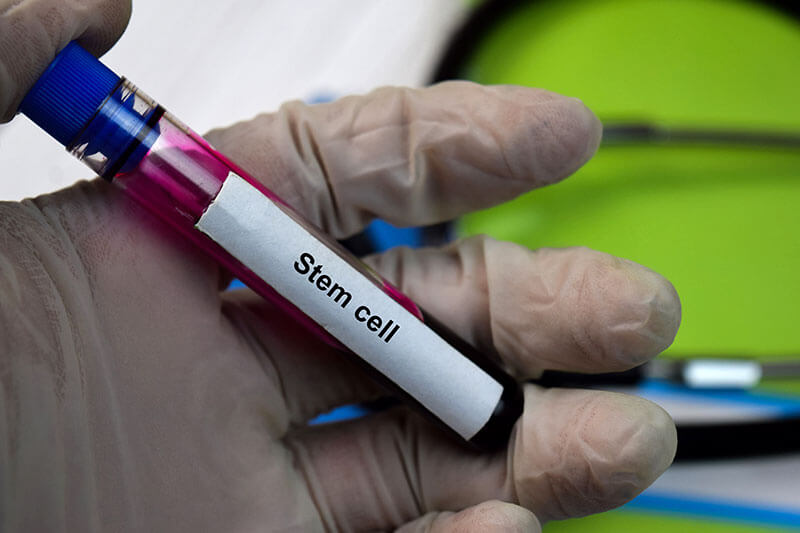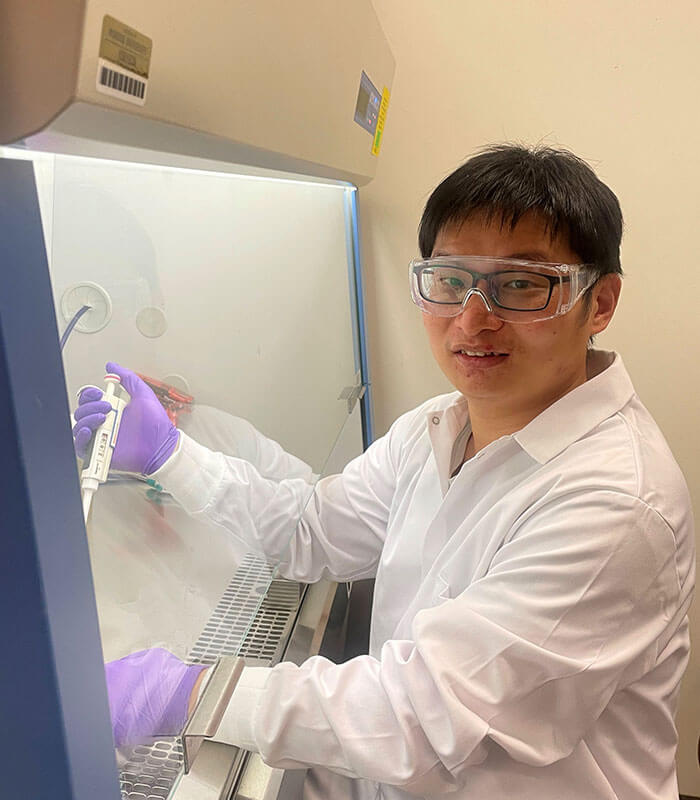
A Purdue University chemical engineer has improved upon traditional methods to produce off-the-shelf human immune cells that show strong antitumor activity, according to a paper published in the peer-reviewed journal Cell Reports. And future research plans include clinical trials involving the Purdue University College of Veterinary Medicine.
Dr. Xiaoping Bao, a Purdue University assistant professor in the Davidson School of Chemical Engineering, said CAR-neutrophils, or chimeric antigen receptor neutrophils, and engraftable HSCs, or hematopoietic stem cells, are effective types of therapies for blood diseases and cancer. Neutrophils are the most abundant white cell blood type and effectively cross physiological barriers to infiltrate solid tumors. HSCs are specific progenitor cells that will replenish all blood lineages, including neutrophils, throughout life.
“These cells are not readily available for broad clinical or research use because of the difficulty to expand ex vivo to a sufficient number required for infusion after isolation from donors,” Dr. Bao said. “Primary neutrophils especially are resistant to genetic modification and have a short half-life.”
Dr. Bao has developed a patent-pending method to mass-produce CAR-neutrophils from human pluripotent stem cells (hPSCs), that is, cells that self-renew and are able to become any type of human cell. The chimeric antigen receptor constructs were engineered to express on the surface of the hPSCs, which were directed into functional CAR-neutrophils through a novel, chemically defined protocol.

The method was created in collaboration with Dr. Qing Deng in Purdue’s Department of Biological Sciences; Dr. Hal E. Broxmeyer, now deceased, at the Indiana University School of Medicine; and Dr. Xiaojun Lian at Pennsylvania State University.
“We developed a robust protocol for massive production of de novo neutrophils from human pluripotent stem cells,” Dr. Bao said. “These hPSC-derived neutrophils displayed superior and specific antitumor activities against glioblastoma after engineering with chimeric antigen receptors.”
Dr. Bao disclosed the innovation to the Purdue Research Foundation Office of Technology Commercialization, which has applied for an international patent under the Patent Cooperation Treaty system of the World Intellectual Property Organization. The innovation has been optioned to an Indiana-headquartered life sciences company.
“We will also work with Dr. Timothy Bentley and his team at the Purdue College of Veterinary Medicine to run clinical trials in pet dogs with spontaneous glioma,” Dr. Bao explained. Dr. Bentley is professor of neurology and neurosurgery in the College of Veterinary Medicine’s Department of Veterinary Clinical Sciences.
This research project was partially supported by the Davidson School of Chemical Engineering and College of Engineering Startup Funds, Purdue Center for Cancer Research, Showalter Research Trust and federal grants from the National Science Foundation and National Institute of General Medical Sciences.
Click here to view a complete news release.
